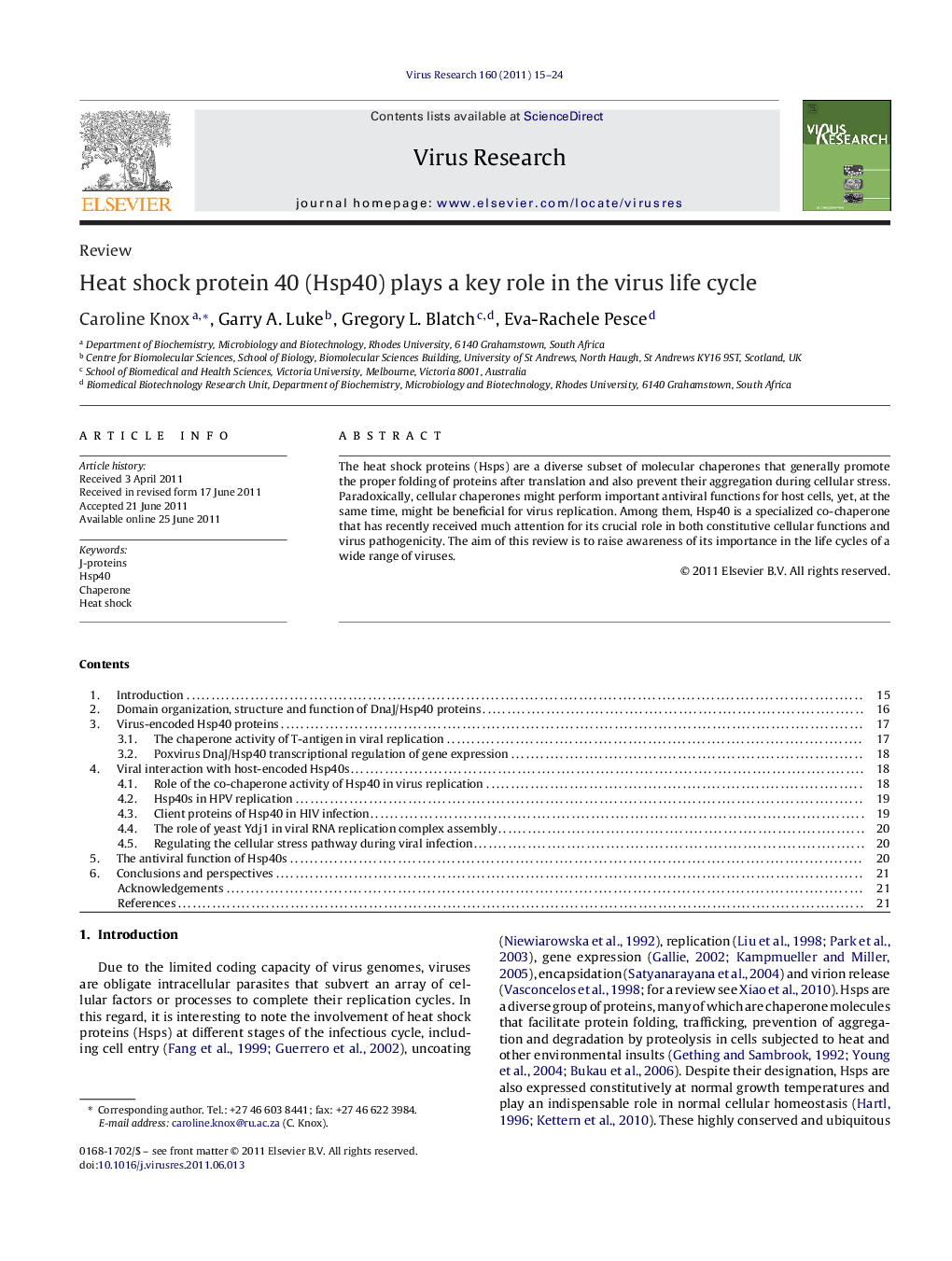| Article ID | Journal | Published Year | Pages | File Type |
|---|---|---|---|---|
| 6143339 | Virus Research | 2011 | 10 Pages |
The heat shock proteins (Hsps) are a diverse subset of molecular chaperones that generally promote the proper folding of proteins after translation and also prevent their aggregation during cellular stress. Paradoxically, cellular chaperones might perform important antiviral functions for host cells, yet, at the same time, might be beneficial for virus replication. Among them, Hsp40 is a specialized co-chaperone that has recently received much attention for its crucial role in both constitutive cellular functions and virus pathogenicity. The aim of this review is to raise awareness of its importance in the life cycles of a wide range of viruses.
⺠The relevant literature regarding the role of DnaJ/Hsp40 in the virus life-cycle is reviewed. ⺠Some viruses encode their own DnaJ homologue while others utilise the host protein. ⺠We emphasise crucial roles for this class of chaperone protein in the replication of diverse viruses.
